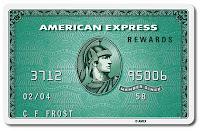
Debt collectors cannot lie to you during the course of their communications about money you allegedly owe. That's one of the basics of the Fair Debt Collections Practices Act (FDCPA).
In fact, a collector does not have to tell a flat-out falsehood to violate the FDCPA; any statement that is "deceptive" or "misleading" is a violation and should lead to damages if you bring a lawsuit in federal court.
The operative word in the previous sentence is "should." That's because the federal bench is littered with judges who are corrupt, incompetent, senile--or a combination of all three. Many of them were appointed to the bench from large, corporate law firms--and these jurists often are more loyal to business interests than they are to the law.
A perfect example is U.S. District Judge Abdul Kallon, the Obama appointee who heard the FDCPA lawsuit Mrs. Schnauzer and I filed in the Northern District of Alabama. Kallon came from the "pro business" firm of Bradley Arant and was recommended by former U.S. Rep. Artur Davis (D-AL), who has since switched to the Republican Party.
Kallon is a Democratic appointee, so quite a few Alabama consumers probably go before him thinking they will get a fair shake. They almost certainly will be disappointed, and that's because Abdul Kallon is a corporate whore. I have absolute proof of that; after all, Kallon granted summary judgment to collectors in the face of irrefutable evidence that they violated the law. (See video at the end of this post.)
Speaking of evidence, tape recordings are wonderful things. They reveal the truth about people and entities in a way that cannot be denied. In the second part of our series about collectors "caught in the act" of violating the FDCPA, we are dealing with a common character on the American frontier--a debt collector who tells a bald-faced lie. And this one did it while representing some of the biggest names in the corporate constellation.
The collector is Tracy Mize, who worked for the Birmingham law firm of Ingram and Associates. She was trying to collect a debt I allegedly owed to American Express, which had placed the account with a Pennsylvania-based collection company called NCO, which placed it with Ingram.
NCO, by the way, is owed by JPMorgan Chase, the largest private corporation in the world. You see what I mean about the big hitters involved here.
Let's set the stage for Tracy Mize's big lie: I told her about the misconduct we had witnessed from multiple lawyers and judges in Shelby County, Alabama--and noted that expenses associated with a protracted (and bogus) legal battle had put a crimp in our finances. She responded with her own story, about a complaint she filed that led to the disbarment of a senior partner at Sirote and Permutt, one of the major firms in Jefferson County. I noted that bar rules require an attorney who has "unprivileged knowledge" of misconduct within the legal community to report it to the "proper tribunal." Mize acknowledged the rule, but seemed to be convinced that it did not apply to her boss, Angie Ingram. That led to this comment from Mize:
But see, Angie has to stay out of this. She is hired by American Express to pursue this. She can't get involved in wrongdoing alleged against other attorneys. That's a conflict of interest for her. That's why I think you need to speak to a third party because Angie is the attorney for American Express, hired specifically to pursue these cases legally.
Mize states that Angie Ingram was "hired by American Express" and adds that Ingram is "the attorney for American Express." That probably is an effective statement in a collection case because it makes an alleged debtor think he is facing the resources of a corporate powerhouse. But there is a slight problem with the statement: It isn't true.
How do I know that? Gregory R. Stevens, vice president for customer contact management at NCO, filed an affidavit in my lawsuit that states the following:
10. On July 5, 2007, NCO referred the account to Ingram and Associates (Ingram) to file suit.
In her own affidavit, Angie Ingram admits she was hired by NCO, not American Express. So Tracy Mize lied to me, and that is a violation of 15 U.S.C. 1692e, which states in pertinent part:
A debt collector may not use any false, deceptive, or misleading representation or means in connection with the collection of any debt.
I suspect the con game that Ingram and Associates tried on me is pulled on thousands of consumers every day across America. A collection attorney obviously wants you to believe she represents the biggest and baddest kid on the block--or at least the corporate entity that you most likely have heard of.
That way, she increases the chances that you will soil yourself and agree to a settlement--probably in that order.
Chances are that you've never heard of most debt-collection outfits, so dropping those names is not likely to have the desired effect. What's the solution for the collector, who really, really wants you to soil yourself? In my case, it was to tell me that the attorney had been hired by American Express--even though it wasn't true.
Just think about it: The representative for a collection attorney tells you she was hired by NCO. You're likely to say, "Never heard of 'em, so bite me." But let her say she was hired by American Express, and you immediately start to sense a loosening in your bowels.
The collector hopes that disturbing sensation is followed by a loosening in your wallet.
How does this scam play out in real life? You can catch it "live and in color" at the video below.
Previously in our series:
Tape Recordings Nail Debt Collectors in Flagrant Violations of Federal Law
